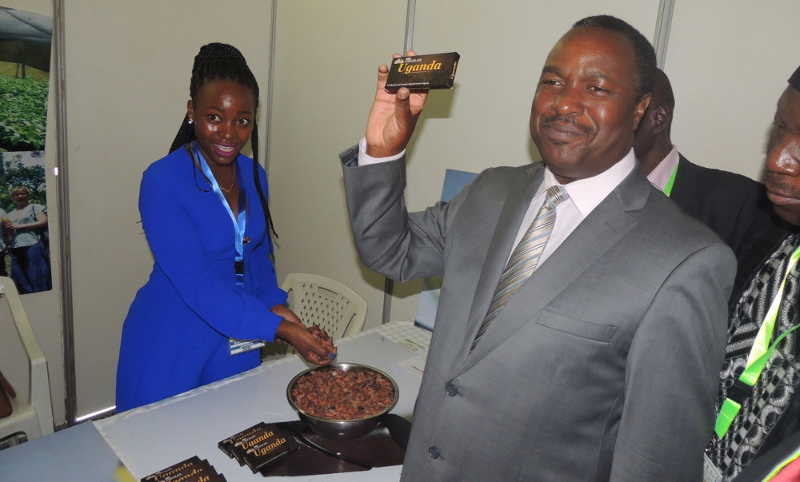
The Minister of Science, Technology and Innovation (MoSTI) Hon. Dr. Elioda Tumwesigye has called upon the media and the general public to remain objective on every information delivered to the people.
Speaking during the training workshop organized by the Science Foundation for Livelihoods and Development (SCIFODE) in Collaboration with National Crops Resources Research Institute (NaCRRI), and NARO at Fairway Hotel, Minister Elioda noted that its unfortunate some media houses have invested in reporting inaccurate information something which is dangerous to National development.
On putting special emphasis on the National Biosafety Bill, Minister noted that some media houses reported with bold headlines that the president had rejected to bill something that was wrong since the Head of State only sought for clarification on some issues but not rejecting to ascend it as some media houses claimed.
“In the past few years, and even in recent weeks, I have seen the media with prominent headlines on the National Biosafety Bill (that you have wrongly renamed as the GMO bill). The fact that the President raised a couple of concerns on this bill does not mean that it has been rejected. I however see some sections of the media and media platforms giving this wrong impression.” Dr. Elioda said.
Minister Elioda also tasked Ugandans especially the youth to fully engage and embrace technology if they are to remain relevant in the fast growing economy.
The Sheema North lawmaker adds that the National Biosafety bill is an important thing we need to also warmly welcome so as to have some issues and changes affecting innovators and the agricultural sector addressed.
It should be noted that on 3rd and 4th October, 2017, MPs debated and passed the National Biotechnology and Biosafety Bill, 2012.
But on 21st December 2017, President Museveni declined to assent to the Bill and wrote to the Speaker, asking Parliament to clarify on the title of the Bill, patent rights of indigenous farmers and sanctions for scientists who mix GMOs with indigenous crops and animals before he signs the Bill.
The Bill was on recently re-tabled on the floor of parliament where it is expected to be returned to the committee on Science and Technology.
Facts about GM Crops and how they can boost the economy.
According to National Crops Resources Research Institute-Namulonge, About 86 per cent of farmers grow maize where also Maize Stem Borer contributes to about 30 per cent loss. Drought kills maize and causes a loss of $19.4m every year. Yet the economic benefits from adopting GM maize are estimated at $25.4m.
Banana Bacterial Wilt (BBW), Uganda loses $299.6m worth of bananas annually. Uganda is Africa’s leading banana producer and will lose that position if the problem continues. Naro has developed BBW-resistant genetically modified (GM) banana varieties. Over 13 million Ugandans depend on bananas for food and income.
Cassava Brown Streak Disease (CBSD) causes an annual loss of $24.2m. More than 10 million Ugandans consume cassava as main food and 75 per cent of farmers grow it. Naro has also developed CBSD-resistant GM cassava. Potential yield loss due to sweet potato weevil is 98 per cent. Uganda is Africa’s most important sweet potato producer but it may lose out. But adoption of GM potato could earn $16m annually.
Also Read GM Crops to boost economy, solve hunger crisis – Government
It’s also revealed that Uganda consumes 175,000 metric tons of rice and we save $30m by growing it ourselves. But soil-related stress has hampered production, which scientists say can be resolved if we grow low-nitrogen and drought-resistant GM rice.
In this same plea, Uganda is still conducting field trials in Kasese, Namulonge, and Serere districts as the country awaits the passing of the Biosafety and Biotechnology Bill. Conventional drought-tolerant maize hybrids are currently marketed under the trademark DroughtTEGO after almost seven years of research.
Since 2013, a total of 786 tons of seed have been availed to farmers for cultivation, conservation reaching about 200,000 farm-households and benefiting 1.8m people in the pilot countries.
This project, has received a general or environmental approval of the transgenetic (GMO) drought-tolerant (DT) trait in South Africa and the Insect-pest protected Bt trait in Kenya.
